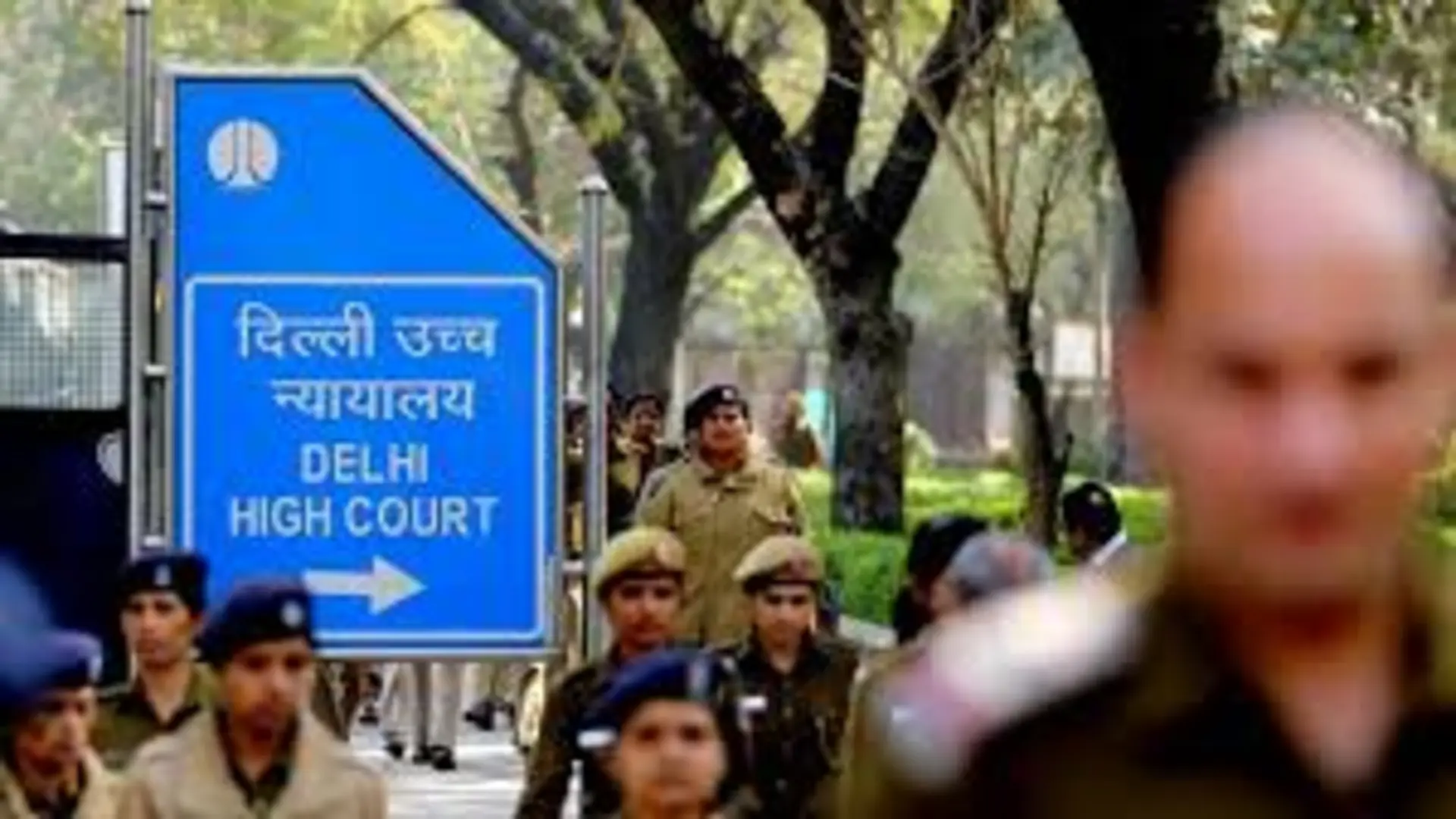It cannot be just glossed over that none other than the Supreme Court has in a latest, learned, laudable and landmark judgment titled Sudipta Chakrobarty & Anr. Vs. Ranaghat S.D. Hospital & Ors. in Civil Appeal No. 9404/2019 delivered as recently as on 15 February 2021 while criticising the practice of ‘reasons to follow’ orders has directed the National Consumer Disputes Redressal Commission (NCDRC) to pass reasoned judgement along with the operative order. The two-judge Bench of Apex Court comprising Justice Indu Malhotra and Justice Ajay Rastogi observed in no uncertain terms that in all matters before NCDRC where reasons are yet to be delivered, it must be ensured that the same are made available to the litigating parties positively within a period of two months. It merits no reiteration that the Apex Court has rightly espoused in this leading case the right of the litigants to know the reasons for the judgment for without the same it can be arbitrary, whimsical and unaccountable not serving the ends of justice which cannot under any circumstances be justified! Very rightly so!


To start with, the ball is set rolling in this commendable, composed and cogent judgment by first and foremost observing in the opening para that, “In the present case, the reasoned order was passed on 20.12.2019 by the National Consumer Disputes Redressal Commission (“National Commission” for short) in C.A. No. 9404 of 2019. Afresh civil appeal was filed before this Court being C.A. No. 6476 of 2020, which has been dismissed vide Order dated 06.3.2020.”
In hindsight, the Bench then recalls in para 2 that, “This Court had vide Order dated 08.1.2020 directed the Registrar of the National Commission to submit a Report stating the number of cases in which reasoned judgments had not been passed, even though the operative order had been pronounced in Court. By the report dated 27.7.2020, we have been informed that as on 20.12.2019, there were 85 such cases in which the operative order had been pronounced, but reasoned judgments were not delivered so far.”
Significantly, the Bench then goes on to add in the next para that, “The fact which has been brought to our notice by the Registrar of the Commission can, in no manner, be countenanced that between the date of operative portion of the order and the reasons are yet to be provided, or the hiatus period is much more than what has been observed to be the maximum time period for even pronouncement of reserved judgments. In State of Punjab & Ors. Vs. Jagdev Singh Talwandi 1984 (1) SCC 596 in para 30, the Constitution Bench of this Court, as far back in 1983, drew the attention of the Courts/Tribunal of the serious difficulties which were caused on account of a practice which was being adopted by the adjudicating authorities including High Courts/Commissions, that of pronouncing the final operative part of the orders without supporting reasons. This was later again discussed by this Court in Anil Rai Vs. State of Bihar 2001(7) SCC 318.”
More significantly, what all the Judges must always remember is what is then stated by the Bench in the next para that, “Undisputedly, the rights of the aggrieved parties are being prejudiced if the reasons are not available to them to avail of the legal remedy of approaching the Court where the reasons can be scrutinized. It indeed amounts to defeating the rights of the party aggrieved to challenge the impugned judgment on merits and even the succeeding party is unable to obtain the fruits of success of the litigation.”
Most significantly and most remarkably, while continuing in a similar vein what really forms the cornerstone of this brilliant, brief, balanced and bold judgment is then stated in the next para along with relevant and landmark judgments and which cannot be just glossed over is that, “The aforementioned principle has been emphatically restated by this Court on several occasions including in Zahira Habibulla M. Sheikh & Ors. Vs. State of Gujarat & Ors. [AIR 2004 SC 3467 paras 80-82]; Mangat Ram Vs. State of Haryana [2008 (7) SCC 96 paras 510]; Ajay Singh & Anr. Etc. Vs. State of Chhattisgarh & Anr. [AIR 2017 SC 310] and more recently in Balaji Baliram Mupade & Anr. Vs. The State of Maharashtra & Ors. (Civil Appeal No. 3564 of 2020 pronounced on 29.10.2020), Oriental Insurance Co. Ltd. Vs. Zaixhu Xie & Ors. (Civil Appeal No. 4022 of 2020 pronounced on 11.12.2020) and SJVNL Vs. M/s CCC HIM JV & Anr. (Civil Appeal No. 494 of 2021 pronounced on 12.02.2021) wherein the delay in delivery of judgments has been observed to be in violation of Article 21 of the Constitution of India and the problems gets aggravated when the operative portion is made available early, and the reasons follow much later, or are not made available for an indefinite period.”
Be it noted, the Bench then goes on to add in the next para that, “In the instant case, the operative order was pronounced on 26.04.2019, and in the reasons disclosed, there is a hiatus period of eight months.” Such a prolonged delay in disclosing the reasons does not inspire confidence among the litigants and is not a good practice which needs to be shunned forthwith! There can be no denying it!
Going forward, the Bench then goes on to add in the next para that, “Let this Order be placed before the President of the National Consumer Disputes Redressal Commission to look into the matter, and take necessary steps so that this practice is discontinued, and the reasoned Judgment is passed alongwith the operative order. We would like to observe that in all matters where reasons are yet to be delivered, it must be ensured that the same are made available to the litigating parties positively within a period of two months.
Finally, it is then held in the concluding paras that, “With these observations, the Appeal stands disposed of. Pending application(s), if any, stand disposed of.”
No doubt, it is certainly beyond the capacity of my pen to express in words how much happy one feels to see that the two Judge Bench of Apex Court comprising of Justice Indu Malhotra and Justice Ajay Rastogi expresses their extremely commendable, composed and cogent judgment so briefly, boldly and brilliantly in just 5 pages thus making the task of the litigants much easier while they go through it without spending too much time just reading it and understanding the intricacies involved by stretching each and every nerve of the brain! It cannot be disputed that the Apex Court has very rightly, remarkably and reasonably held that reasoned judgments must be passed while deprecating the reprehensible practice of ‘reasons to follow’ orders which befuddles the litigants as they don’t comprehend as to what are the reasons for passing such a judgment. This alone explains why the Apex Court has not lost this opportunity to make it amply clear in no uncertain terms that in all matters before NCDRC where reasons are yet to be delivered, it must be ensured that the same are made available to the litigating parties positively within a period of two months.
Unquestionably, it is the bounden duty of the NCDRC to implement it in letter and spirit and ensure that it is not observed in the breach! At the cost of repetition, it has to be reiterated yet again that the Apex Court has rightly, remarkably and reasonably espoused in this leading case the right of the litigants to know the reasons for the judgment for without the same it can be arbitrary, whimsical and unaccountable not serving the ends of justice which cannot under any circumstances be justified! Very rightly so!
It goes without saying that there is no reasons why not just the NCDRC but each and every court not implement the gist of this judgment which shall benefit the litigants immensely as they shall come to know the exact reasons for the judgment which in this modern age of right to information must be made available also to the litigants along with the judgment as early as possible.
This alone explains why the Apex Court in this case has set a time limit of two months for the NCDRC also which must be strictly implemented also! We need to understand that where reasons are not disclosed in the judgment, it serves as the biggest handicap of the aggrieved party to challenge the impugned judgment in time on merits and not just this even the succeeding party too suffers as he/she is unable to obtain the fruits of the success of the litigation as has been observed by the Apex Court in this noteworthy judgment also as has been stated above in detail!
On a concluding note, it must be said that we have also discussed the relevant judgments also pertaining to this as stated above! There is no reason why this extremely learned, laudable and landmark judgment is not implemented in totality not just by the NCDRC but by each and every Court in India! There can certainly be just no denying or disputing it! Very rightly so!
More significantly, what all the judges must always remember is what is then stated by the bench in the next para: “Undisputedly, the rights of the aggrieved parties are being prejudiced if the reasons are not available to them to avail of the legal remedy of approaching the Court where the reasons can be scrutinised. It indeed amounts to defeating the rights of the party aggrieved to challenge the impugned judgment on merits and even the succeeding party is unable to obtain the fruits of success of the litigation.”























